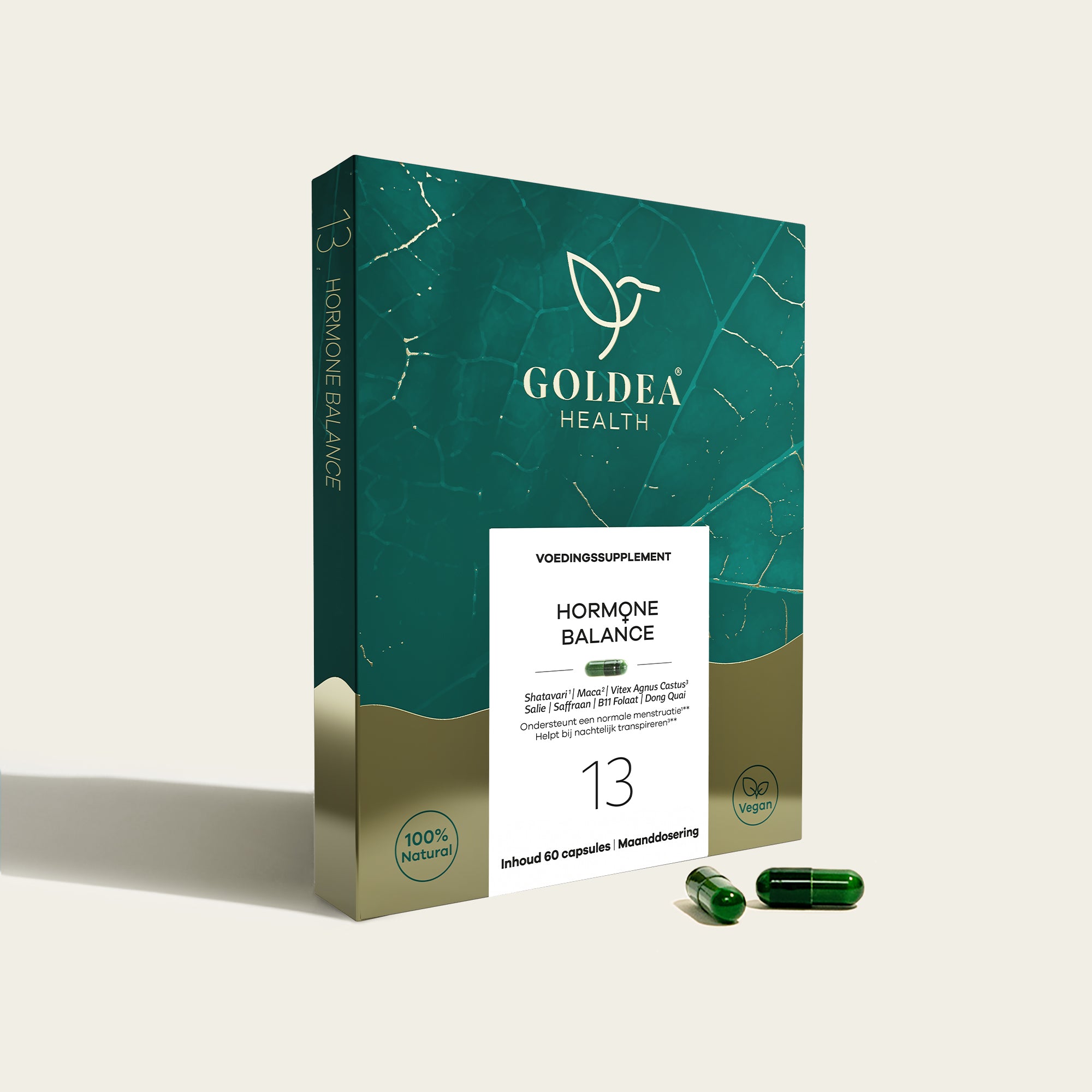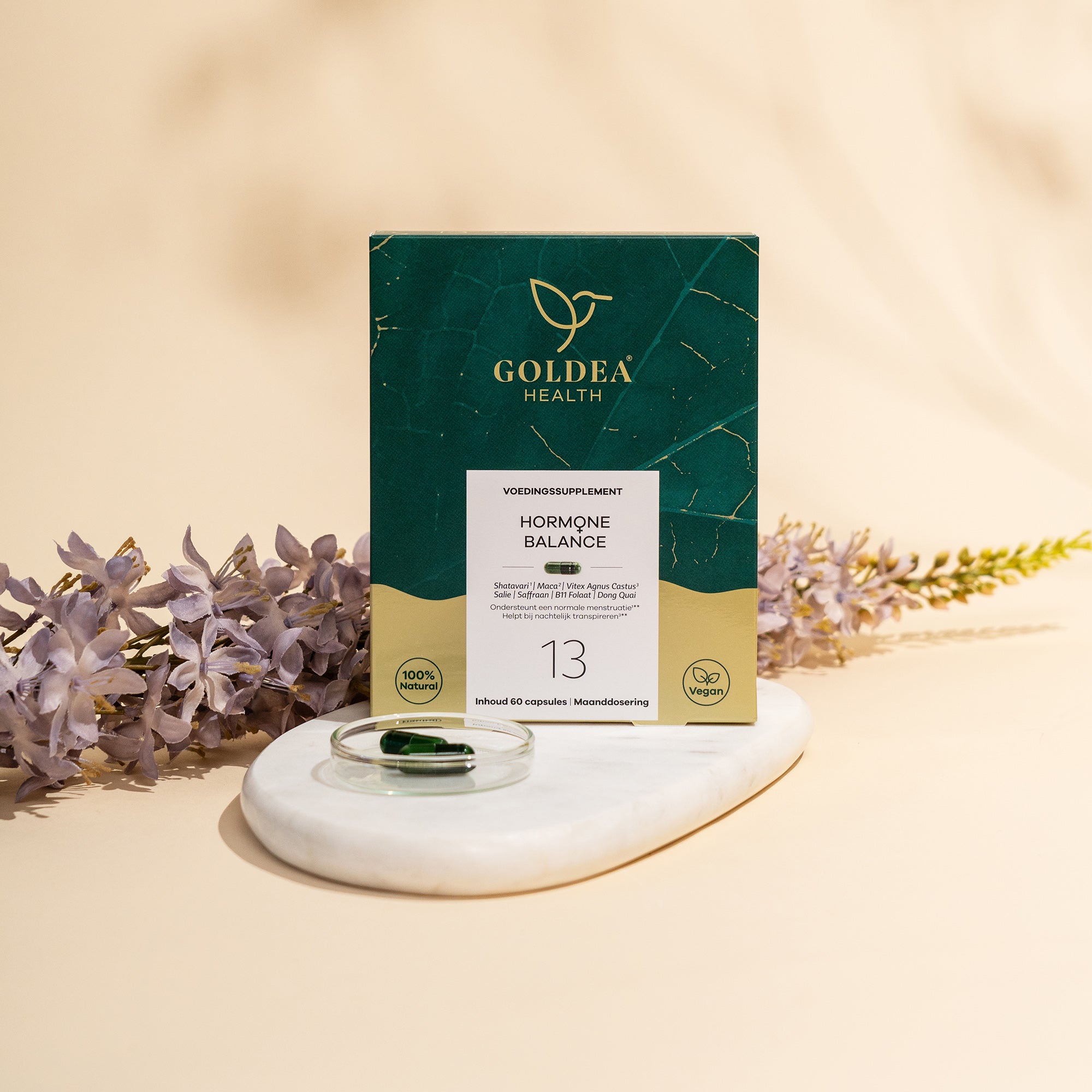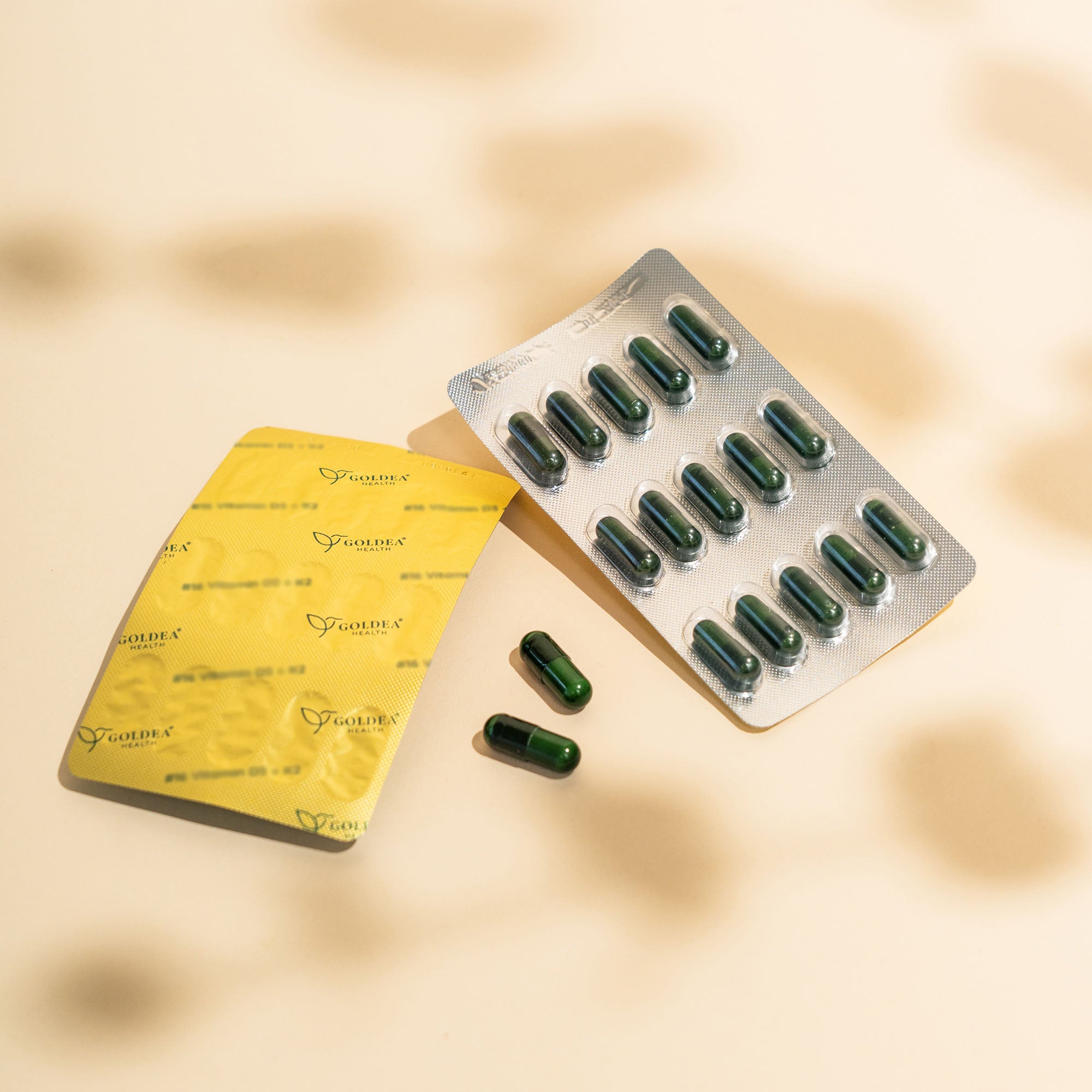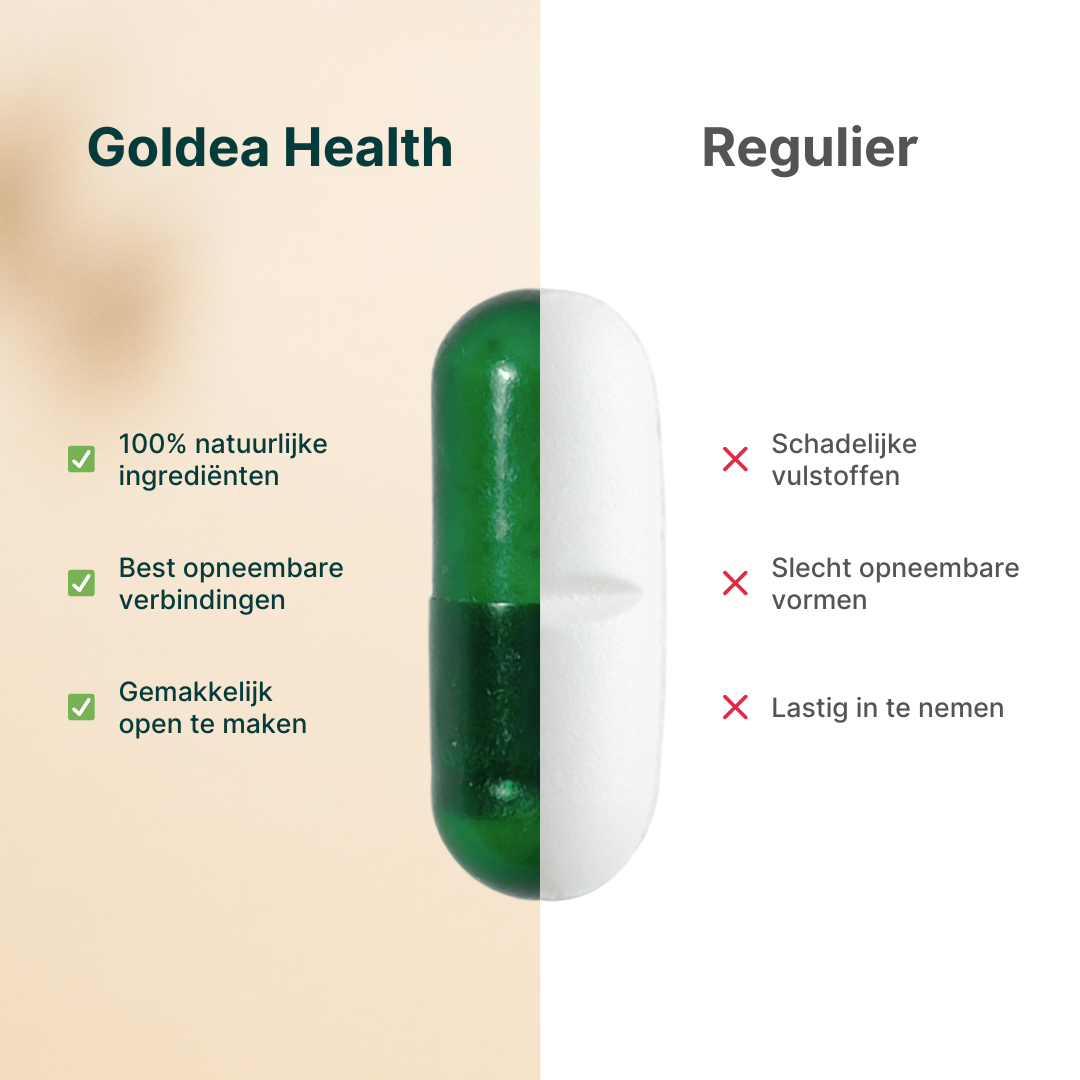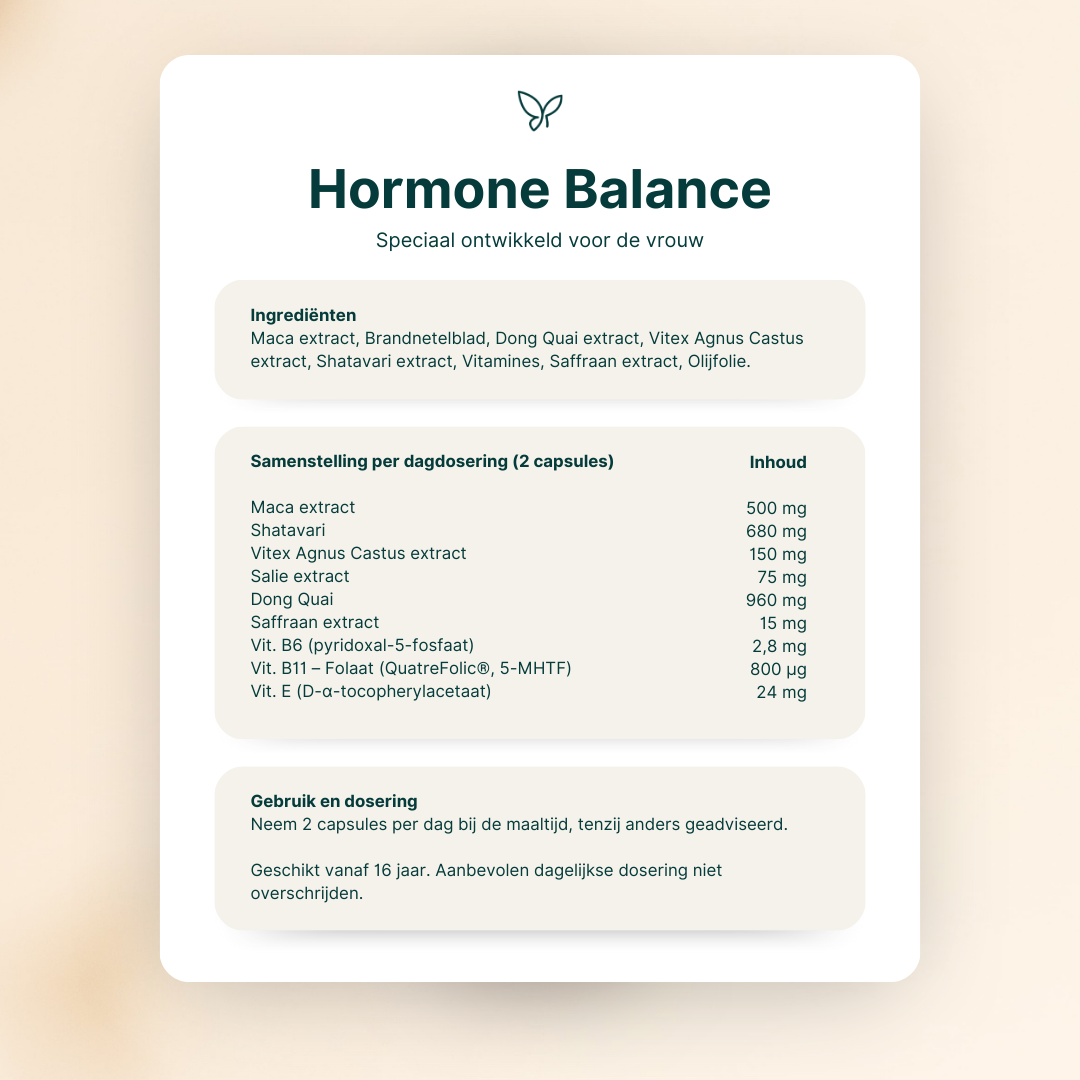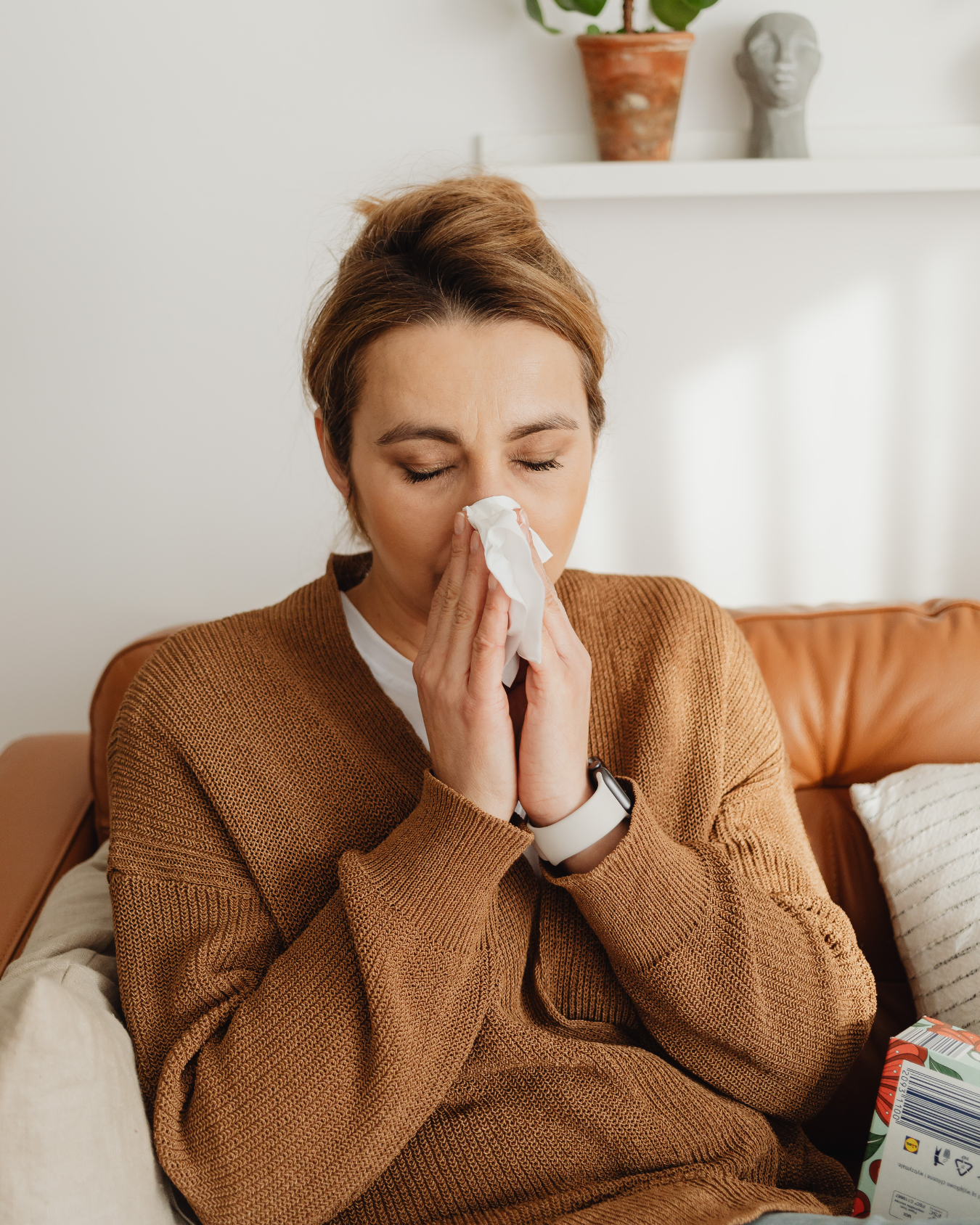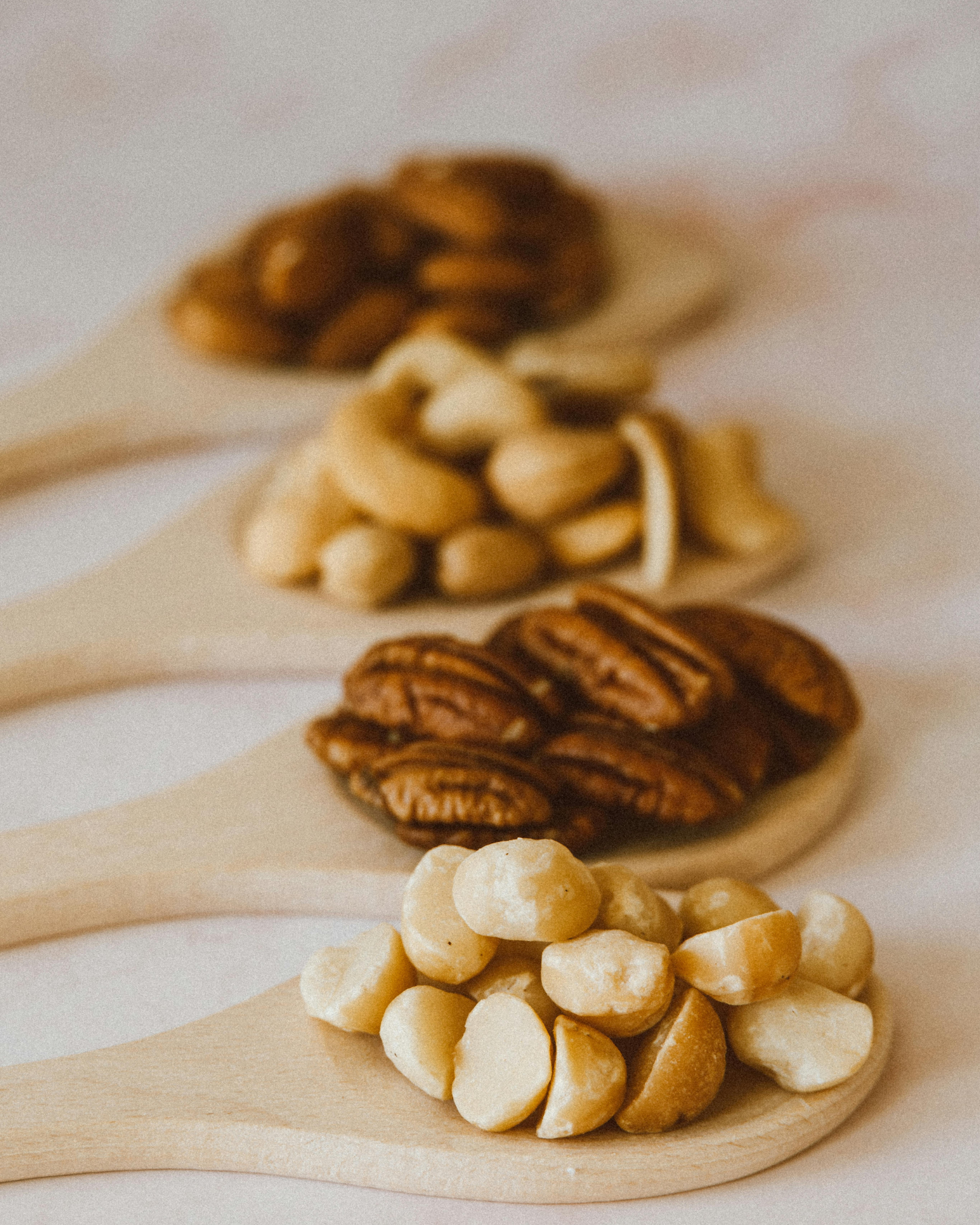Nieuw bij Goldea? 15% kennismaking met code: FRESHSTART15
Reading time: 5 minutes
This blog and PMS self-test is for you if:
What is PMS?
You're not alone; many share your experience. Let's delve into the definition of Premenstrual Syndrome, abbreviated as PMS. This is a hormonal condition that occurs a few days before menstruation and usually disappears with the onset of menstruation.
About 4 percent of women of childbearing age regularly experience PMS symptoms. It's more common in women aged 30 and over or after having children.
Let's delve deeper into what exactly PMS is and how it affects women at different stages of life.
Symptoms of PMS
Mood swings, emotional turbulence, and physical discomfort— PMS can be a challenging time. By understanding the various symptoms on a physical, emotional, and behavioral level, you'll learn what your body is trying to tell you.
Physical symptoms:
- fatigue
- palpitations
- swollen/tender breasts
- bloated stomach
- retain moisture
- headache/migraine
- constipation or diarrhea
- cramp
- changing appetite
- muscle and joint pain
- tight, painful skin
- sleep problems
Mental/emotional:
- sudden crying fits
- irritability
- mood swings
- despondency
- depressive feelings
- fear
- concentration problems
- aggression
- forgetfulness
Factors that worsen PMS
These are causes that can cause you PMS:
- Hormonal fluctuations: Changes in sex hormones, especially progesterone, contribute to PMS.
- Lifestyle choices: Diet, exercise, and sleep patterns influence PMS symptoms; an unbalanced lifestyle can worsen symptoms.
- Stress: High stress levels are directly linked to PMS, which can cause hormonal imbalances and more intense symptoms.
- Progesterone deficiency: Insufficient progesterone production in the second half of the menstrual cycle disrupts the hormonal balance, resulting in physical and mental complaints.
- Vitamin and mineral deficiencies: Deficiencies in vitamin B6, calcium, and magnesium worsen PMS symptoms, as these nutrients are crucial for healthy hormone balance.
PMS self-test
Let's do a quick PMS check together. This self-test will help you determine if PMS is the cause of your hormonal problems.
PMS Check: 10 Short Closed Questions
- Do you experience sudden mood swings, especially in the days before your period?
- Do you regularly experience physical symptoms such as breast tenderness and abdominal cramps before your period?
- Do you notice an increase in irritability and anxiety during the premenstrual period?
- Do you experience dizziness or heart palpitations during this phase of your cycle?
- Do you feel excessively tired before your period?
- Are you experiencing unexplained nightmares during this time?
- Have you noticed that your breasts are swollen during premenstrual days?
- Do you feel bloated and experience constipation in the run-up to your period?
- Are your headaches more frequent and intense around your period?
- Have you noticed your appetite and mood fluctuating in the days leading up to your period?
Can you answer "yes" to several of these questions? Then read on, because we're happy to give you tips on how to reduce these symptoms.
Tips for PMS complaints
Now that we understand PMS better, let's move on to some practical tips.
1. Rest before/during menstruation
Discover the secret of a period retreat . Treat yourself to extra sleep, warm baths, foot massages, and avoid strength training. Listen to your body, release stress, and don't drink alcohol during your period.
And yes, sparkling water or kombucha in a wine glass can also be a treat.
2. Letting go of negative thoughts
Menstruation is a major cleansing, even on an emotional level. Let go of negative thoughts and accept that you'll have less energy during this time.
3. Use a period app
Measuring is knowing; this is the key. Discover when you ovulate and when your period is approaching. Plan ahead and manage your schedule to better understand the ups and downs of your cycle.
4. Heat relieves pain
A hot water bottle, warming food, thick socks, and magnesium baths can help relieve pain and promote a warm uterus. Take good care of yourself during this time.
5. Nutrition = key
Cut back on refined carbohydrates and reduce caffeine to keep your hormones balanced.
Supplements for PMS
1: Omega-3 for estrogen recycling . Omega-3 fatty acids play a crucial role in promoting detoxification and recycling estrogen in the body. Specifically, EPA and DHA. Choose a high-quality omega-3 supplement, see
2: Multivitamin for your overall health. A balanced multivitamin is essential for maintaining optimal health. It provides the body with important vitamins and minerals that may be lacking in the diet. That's why we all take this Vegan Multivitamin daily.
3: Hormone Balance Supplement. Specifically designed to support hormonal balance, this supplement offers a targeted approach to reducing PMS symptoms. Discover the benefits of #13 Hormone Balance for healthier hormonal function.




